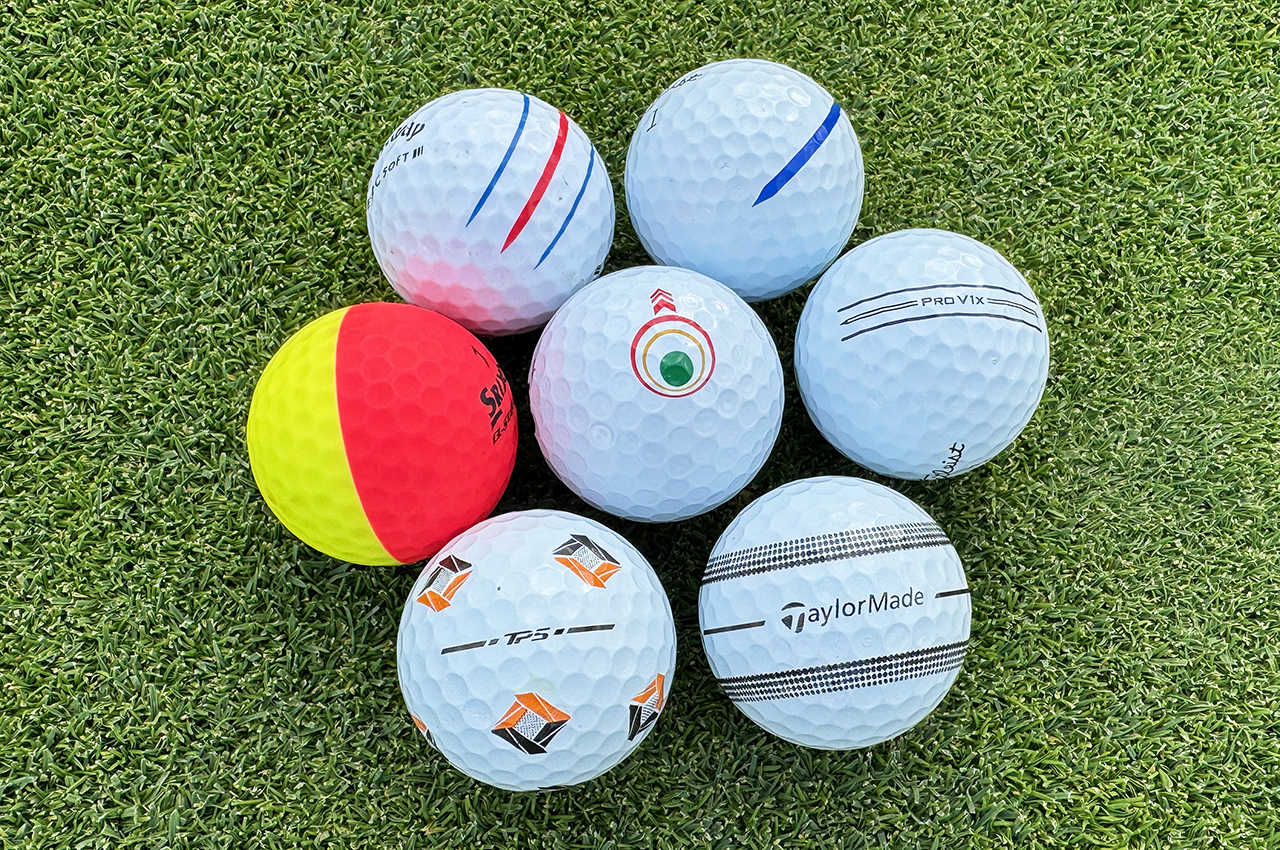Until very recently, the difference in performance between golf balls was only debated on shots hit off the tee, from the fairway and around the green. Once balls come to rest on the putting surface, the talk stops because, by rule, golf balls are the same size (1.68 inches in diameter) and weight (1.62 ounces). Assuming they are manufactured properly, they will all be round with symmetrical dimple patterns. Golf balls with different compressions may sound different when you putt them, but no brand has ever claimed that its balls roll better on the greens because balls should roll equally.
However, in recent years, golf ball manufacturers have started making versions of popular balls with patterns and colorful features to help golfers improve their performance on the greens. Like their all-white counterparts, these balls are the same regulation size, weight and shape.
Alignment arrows, lines, shapes and special markings are generally regarded as identification markings by the USGA and the R&A, and that has allowed manufacturers to get creative and explore different patterns and color options.

Golf balls with lines or patterns can help your putting in two ways. First, aiming a straight line on the ball down the path you want your putt to start on can help some players set up squarely to that line and aim their putter’s face more effectively, and a better setup can lead to a more effective stroke. Second, if you line up a putt and hit it, and then see the line neatly roll end over end as the ball rolls toward the hole, you know the face of your putter and your stroke matched your intended line. If the line on the ball wobbles or is not rolling end over end, your stroke was not square to your intended path, or the face was either open or closed as it made contact with the ball. Either way, you’re getting feedback, which is why some golfers who don’t use a lined ball when they play use one as a training aid.
Below are several balls that are designed to enhance your performance on the greens using patterns and colors, listed from subtle to bold. Which is right for you? Like golf clubs, the best way to find the ball that helps you the most is to try several different models and test them on the practice green. But remember, you’re not only going to hit putts with this ball, so after testing to see if it helps you on the greens, you want to consider and test how the balls perform on short game shots, iron shots and off the tee.

